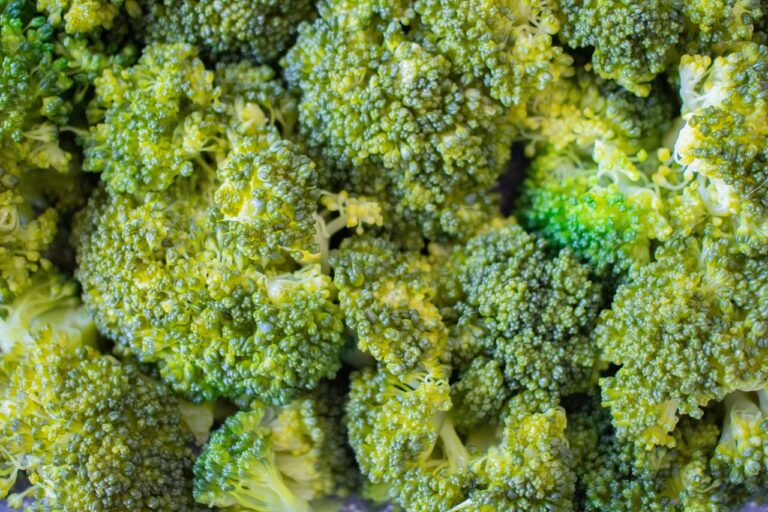The Benefits of Plant-Based Diets for Supporting Immune Function: 11xplay online, Indian 24bet, Skyinplay login
11xplay online, indian 24bet, skyinplay login: Plant-based diets have become increasingly popular in recent years, and for good reason. Not only are these diets beneficial for the environment and animal welfare, but they also offer a wide array of health benefits, including supporting immune function.
In this article, we will delve into the various ways in which plant-based diets can help boost our immune system and keep us healthy and strong. From providing essential nutrients to reducing inflammation, plant-based diets have a lot to offer when it comes to supporting our immune function.
Let’s take a closer look at some of the key benefits of plant-based diets for immune health:
1. Rich in Antioxidants: Plant-based diets are typically rich in antioxidants, which are compounds that help protect our cells from damage caused by free radicals. Free radicals can weaken the immune system and make us more susceptible to infections and diseases. By consuming a variety of fruits, vegetables, nuts, seeds, and legumes, we can ensure our bodies are getting a steady supply of antioxidants to help support our immune function.
2. High in Vitamins and Minerals: Plant-based diets are also high in essential vitamins and minerals that are crucial for a healthy immune system. Vitamins such as Vitamin C, Vitamin E, and Vitamin A, as well as minerals like zinc, selenium, and iron, play key roles in the immune response. By including a wide variety of plant foods in our diet, we can ensure we are getting all the nutrients our immune system needs to function optimally.
3. Supports a Healthy Gut Microbiome: Our gut health plays a significant role in our immune function, as a large portion of our immune system resides in our gut. Plant-based diets are rich in fiber, which helps promote the growth of beneficial bacteria in our gut. A healthy gut microbiome is essential for a strong immune response and can help protect us from harmful pathogens.
4. Reduces Inflammation: Chronic inflammation can weaken the immune system and increase the risk of developing various diseases. Plant-based diets are known for their anti-inflammatory properties, thanks to the abundance of phytonutrients and antioxidants they contain. By reducing inflammation in the body, plant-based diets can help support a healthy immune system and lower the risk of chronic illnesses.
5. Supports a Healthy Weight: Maintaining a healthy weight is essential for overall health and immune function. Plant-based diets are often lower in calories and saturated fats compared to traditional Western diets, making them a great choice for weight management. Excess weight can put strain on the immune system and increase the risk of inflammation and other health issues. By following a plant-based diet, we can support a healthy weight and boost our immune function.
6. May Lower the Risk of Chronic Diseases: Plant-based diets have been linked to a reduced risk of developing chronic diseases such as heart disease, diabetes, and certain types of cancer. By reducing the burden of these diseases on the body, plant-based diets can help support a strong immune system and overall health. When our bodies are not constantly fighting off chronic illnesses, our immune system can focus on protecting us from infections and other threats.
In conclusion, plant-based diets offer a multitude of benefits for supporting immune function. From providing essential nutrients to reducing inflammation and supporting a healthy gut microbiome, plant-based diets can help keep our immune system strong and resilient. By incorporating a variety of fruits, vegetables, nuts, seeds, and legumes into our diet, we can reap the immune-boosting benefits of plant-based eating and enjoy better health and well-being.
Now that you know the benefits of plant-based diets for immune function, you may have some burning questions about how to incorporate more plant foods into your diet. Here are some frequently asked questions to help guide you on your plant-based journey:
FAQs:
1. Is it difficult to get enough protein on a plant-based diet?
While it is possible to get all the essential amino acids from plant foods, it may require a bit more planning to ensure you are meeting your protein needs. Including a variety of legumes, nuts, seeds, and whole grains in your diet can help you get an adequate amount of protein.
2. How can I ensure I am getting enough iron on a plant-based diet?
Plant-based sources of iron include leafy greens, legumes, nuts, seeds, and whole grains. Pairing these foods with Vitamin C-rich fruits and vegetables can help enhance iron absorption.
3. Are plant-based diets suitable for children and pregnant women?
Plant-based diets can be suitable for individuals of all ages, including children and pregnant women. It is important to pay attention to nutrient needs and ensure a well-balanced diet that provides all essential nutrients during these crucial life stages.
4. What are some easy ways to incorporate more plant foods into my diet?
Start by adding more fruits and vegetables to your meals and snacks. Try experimenting with different plant-based proteins such as tofu, tempeh, and legumes. Make gradual changes to your diet to find what works best for you.
5. Can I still enjoy delicious meals on a plant-based diet?
Absolutely! There are endless possibilities for delicious plant-based meals, from hearty veggie stir-fries to comforting bean chilis to vibrant grain bowls. Get creative in the kitchen and experiment with new plant-based recipes to keep your meals exciting and satisfying.
By adopting a plant-based diet and incorporating a variety of fruits, vegetables, nuts, seeds, and legumes into your meals, you can support your immune system and enjoy better health and well-being. Embrace the power of plants and discover the incredible benefits they have to offer for your immune function and overall health.







